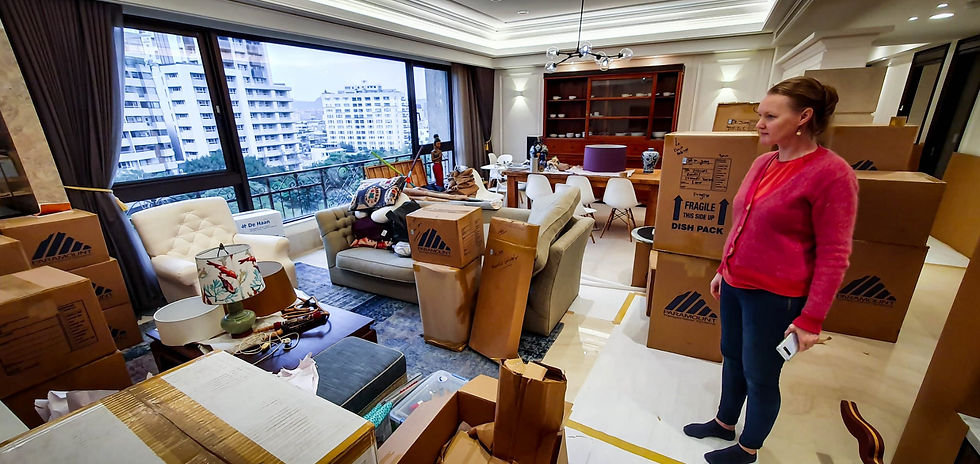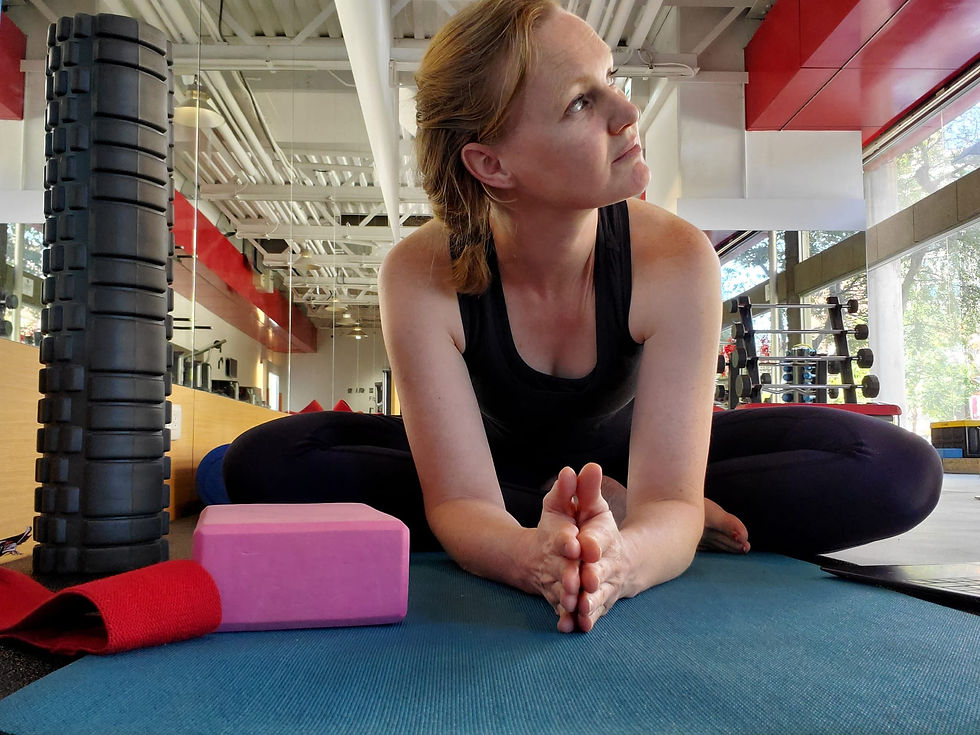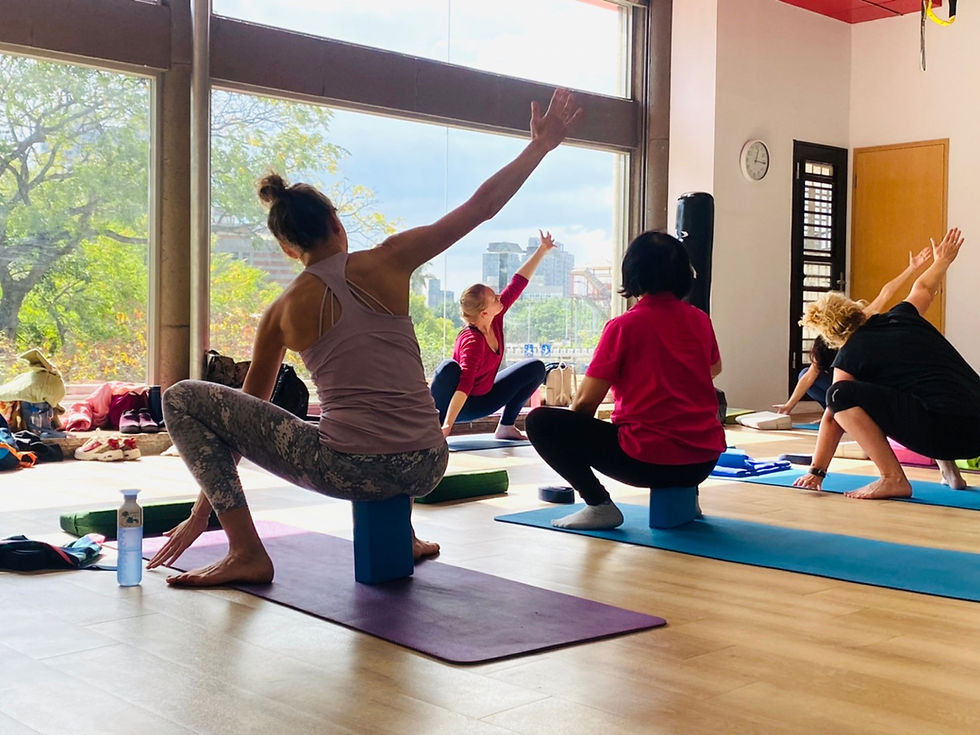Femke is a Buddhist writer, a yoga- and mindfulness expert and a veteran mover. We asked her to share some insight for this month’s feature article.

My first Big Move…The year was 1992. The internet had not yet become mainstream, intercontinental travel was exclusive to business travelers and a privileged few. I was 12 years old. My family lived in Mijnsheerenland, a quiet farmers’ village in the Western part of The Netherlands. Not a care in the world, until my parents dropped a nuclear bomb: “Honey, we’re moving to Bangkok.”
I was livid: shock, anger, all the feels. The possibility had been on the table for a while. My father had been traveling back and forth for a year and a half, as part of a trade mission to secure the – at the time – highly innovative Map Ta Phut project, Thailand’s largest industrial port complex. He had been instrumental in its realization and was to become director of one of the developing companies. This was his big break, my parents were super excited! Me, not so much.
Bangkok, in 1992
We spent the next few months preparing. No internet, no resources. I did not know anyone who had travelled outside of Europe, bar my father. On top of that, I could not speak English. My parents promised me that Bangkok would open doors for me I did not even know existed. As a child, you are painfully aware of the sacrifices you are asked to make but your brain lacks the neurological wiring to envision the benefits. All I could see was grave injustice. I felt robbed, disempowered. I hated this, and I hated my parents for it.
All that changed on the day we arrived. Bangkok, in 1992, was a bustling metropolis of more than 10 million people. Picture a whirling symphony of high rise buildings, endless traffic jams, Buddhist monks, food stalls, road workers using elephants as maintenance vehicles, honking tuktuks and the occasional free roaming cow. It was a sensory explosion of exotic colors, sounds and smells: I absolutely loved it.
Change destabilizes us
Bangkok is where I first met Buddha. Buddha was a philosopher and a teacher, who lived some 2.500 years ago in Northern India. He is the founding father of what we now know as mindfulness, a meditative practice that cultivates mental stability and enhanced awareness. His entire set of teachings is based on the spiritual idea that everything in life is temporary: change is the only constant. Unfortunately, we are conditioned – foolishly - to resist change. We may like the idea of change, but not the reality. It destabilizes us, even if the change is good.
Fear of change is futile: it happens regardless. But the fear of change is deeply ingrained in us. We fear change, because fear is suffering. I learned this on my first day in Bangkok. It was a pivotal moment, a profound shift in paradigm. At the time, I thought it was just me. It wasn’t until I fully immersed myself in mindfulness philosophy that I understood that fear of change resides in all of us. Failure to timely recognize the signs in yourself may lead to needless anxiety, worry and stress. You may think you are acting calm and rational, but you’re not. Failing to timely recognize it in others leads to conflict, because it clouds your ability to meet them where they are. It creates misalignment between your words and your actions. This is especially important for parents, because children intuitively respond to the environment you create for them. More specifically, their behavior mirrors you: not what you say, but how you present. Are they nervous, restless, unruly? Check yourself! This is where mindfulness comes in.

What is mindfulness?
In Western society, the word mindfulness is often understood to mean ‘attention’. In the context of Buddhist philosophy, it means wise attention. To know what you think, see what you do and to hear what you say – while you’re doing it! Think of mindful awareness as a constructive inner critic, a friendly ‘voice’ that guides you as you navigate the complexities of life. With consistent practice, you truly become the master of your thoughts, words and actions in every circumstance.
As parents, we like to shield our children from the realities of life. We understand both the short term and long term implications of change. Children experience the world very different from adults. They understand the world as they see it right here, right now. They don’t share our complex histories, thoughts or emotions. For example, I recently travelled with my children from Taipei to Amsterdam. The airport was deserted, the staff were all dressed in full protective gear for COVID-19. I thought it was eerie, dystopian: my son simply thought it was cool that everyone got to wear spacesuits.
So…what should you be mindful of?
When you guide children through change, it is important to catch yourself the moment you start to project your own experience onto them. Some mindfulness exercises you can practice with are:
· How is my energy? Am I calm or nervous?
· How is my tone? Does it support my message?
· Is my communication consistent? Is it helpful in achieving my goals?
· How is my body language? Does it match my words or my actions?
· Am I communicating my needs (ex: ‘mom guilt’) or am I meeting their needs?
When you are able to face change with a sincere, unwavering sense of calm insight, your children will respond accordingly.
Ultimately, the secret to a successful mindfulness practice is to fully surrender yourself to the spiritual idea of impermanence. You have no control: you never did and you never will. In the words of John Kabatt-Zin: “You can’t stop the waves, but you can learn how to surf.” Mindfulness helps us get there.



Comments